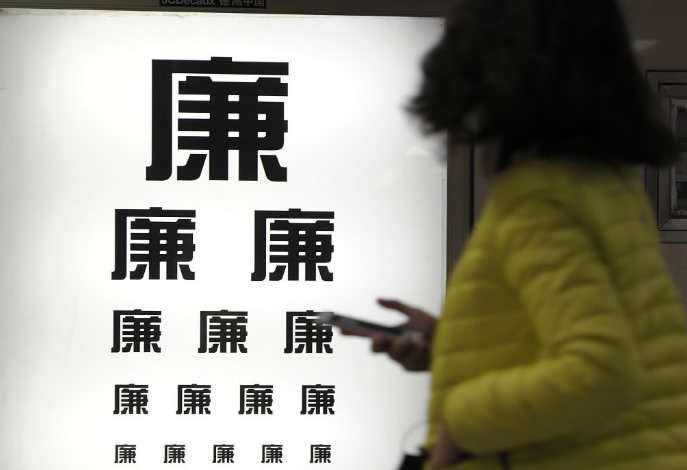
Politics
17:24, 14-Mar-2018
National supervisory commission to boost China's anti-corruption campaign
By Zheng Yibing

China has been chasing corrupt officials, from high-ranking "tigers" to lower-level "flies", over the past five years. To intensify the crackdown on corruption, the government will soon establish a national supervisory commission based on law.
The progress was said to be an iron fist against corruption as the number of corrupt officials falling down set new records.
According to a work report by the Supreme People's Procuratorate, more than 250,000 officials were investigated for suspected involvement in duty-related crimes between 2013 to 2017, a 16.4-percent rise from the previous five-year period.
Losses of over 55.3 billion yuan or around 8.7 billion US dollars have also been recovered.
Meanwhile, Chinese courts have concluded graft cases involving 101 former officials at the provincial and ministerial level or above, such as former Security Chief Zhou Yongkang and former Chongqing Municipality Party Secretary Bo Xilai.
The Supreme People's Court said they have maintained high pressure on graft and "improved our judicial mechanism for handling job-related crimes".
Low-level corruption was also tackled. More than 62,000 corrupt grassroots officers were charged, such as those in charge of local agriculture, housing demolitions, social welfare, and poverty alleviation.
The intensified campaign also targeted suspects who fled overseas. Beijing has carried out operations like "Sky Net" and "Fox Hunt", and 222 fugitives have been brought home since late 2014.
"Zero tolerance, zero loopholes, and zero obstacles. China’s commitment to fighting corruption sends a key message: there’s nowhere to hide for fugitives," said Wang Xiumei, a criminal law professor from Beijing Normal University.
Since November 2012, China has intensified its anti-corruption measures, including disciplinary inspections and supervisory reform.
Supervisory commissions at the provincial, prefectural, and county levels were formed to keep an eye on public officials. The national supervisory commission is also expected to be established at the ongoing first session of the 13th National People's Congress.
Zhang Yesui, the spokesperson for the first session of the 13th National People’s Congress, said that the approach aims to enhance the Party's unified leadership on anti-corruption campaigns and cover everyone working in the public sector who exercises public power.
Officials said China's efforts aim to better protect human rights and uphold justice. Many believe the reforms will mean closer supervision of those exercising public power, and ensure the healthy development of Chinese society.

SITEMAP
Copyright © 2018 CGTN. Beijing ICP prepared NO.16065310-3
Copyright © 2018 CGTN. Beijing ICP prepared NO.16065310-3